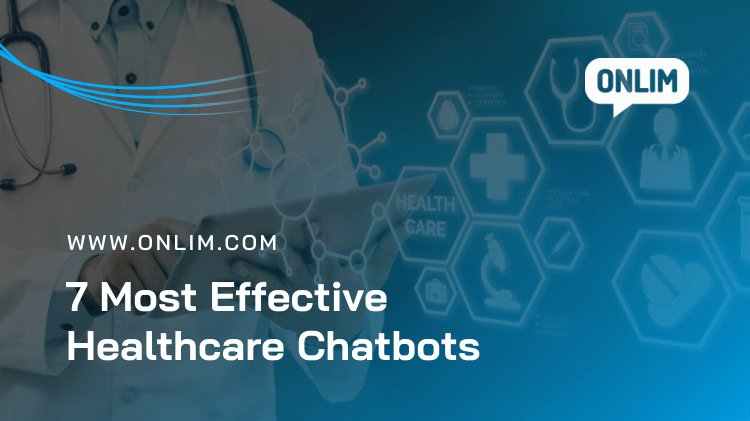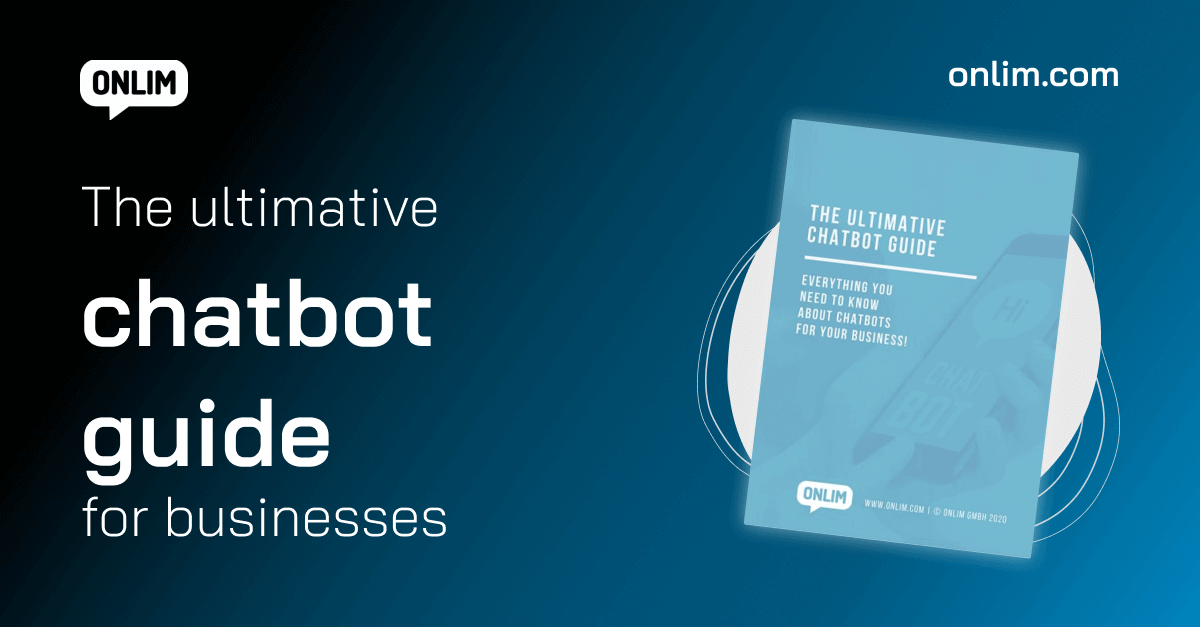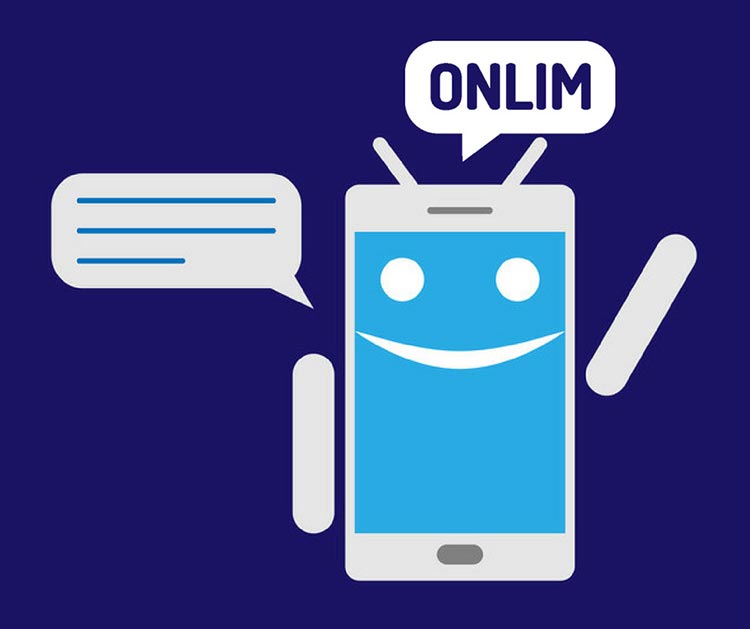7 Most Effective Healthcare Chatbots
As technology continues to grow, so does that of healthcare organizations. Now, patients can actually use healthcare services outside the doctor’s office at their convenience. Artificial intelligence has already made its way into healthcare with innovative things like chatbots. Healthcare chatbots are often available either via standalone apps, on websites, or on messengers. Mimicking human speech to simulate a human conversation, they use natural language processing (NLP) to recognize and interpret what the user is saying.
With that said, here are 7 of the most effective healthcare chatbots that are empowering interactive healthcare, as well as the industry itself.
What are the top healthcare chatbots?
1. Babylon Health
Babylon Health is a subscription health service provider that lets patients have a remote consultation with healthcare professionals and doctors. According to its website, it’s available 24/7, and it has an app that you can download from Google Play or the App Store.
Here’s how easy it is for your patients to use the app:
- Clients can easily download the app.
- They can open the app and fill out a brief form about themselves and their medical history.
- They’ll then be referred to a healthcare professional via text and video messaging.
- Describe how they’re feeling, and the chatbot will cross-check it against a database of diseases to offer an appropriate solution.
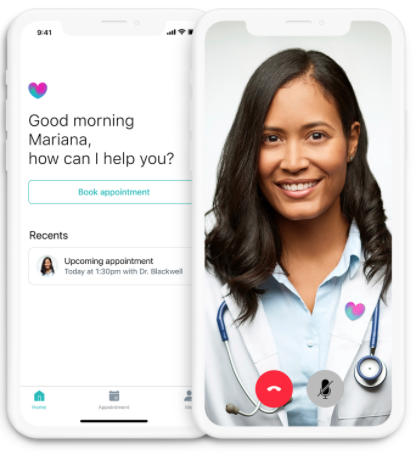
In terms of effectiveness, this is a really handy healthcare chatbot to have since health care providers can minimize the number of people coming into their practice, but instead offer help from home. They can also get employees to download it in any kind of business to help people have the tools they need to look after themselves.
2. Izzy
Izzy – or “Super Izzy,” as it says on its website – is a conversational virtual assistant that’s designed to help women track their periods.
According to Medium, all you have to do are the following, when interacting with Izzy:
- Go to Facebook Messenger to enable this chatbot for customers to access easily.
- Then, Super Izzy will give you a brief introduction, before asking for a response from you.
- Then, she’ll ask you to accept the Terms and Conditions for using her on Messenger.
- Once the T&C is agreed upon, she can assist you with whatever you need (i.e. when to take birth control pills, when your fertility period is, and when your next period date is).
While Izzy is great on Messenger, many users, according to Medium, recommend using it on PC, instead of mobile, due to the better UX design being user-friendly on PC. Sure, this is more of a company-to-patient healthcare chatbot, but it can still be promoted in all settings, including helping people to look after themselves.
By the way, if you’d like to learn more about chatbots for your business – check out our chatbot guide.
3. Sensely
Sensely lets patients track their health symptoms using both text and speech. According to its site, the chatbot aims to “intelligently guide members to insurance services & healthcare resources.” With content from the Mayo Clinic, this multilingual platform “enhances access while building trust.”
Here’s how the chatbot works:
- First, users can report any symptoms that they’re feeling by opening the app, and describing any issues.
- Next, Sensely will match their symptoms in its algorithm to analyze their condition and will ask them how mild or severe symptoms are with a color triage system.
- Afterward, Sensely will recommend a suitable diagnosis, to which the patient can seek the right help for their issues.
4. SafedrugBot the Healthcare Chatbot
This healthcare chatbot, as it claims on its site, aims “to help doctors in their daily work.” By providing valuable guidance and monitoring a woman’s health during breastfeeding, it serves as an assistant that provides medical users accurate data through chat. And, it helps medical providers recommend the best medications to women during their breastfeeding phases.
This can be really helpful for people to look up quick, accurate information whenever it’s needed, meaning you can save time looking things up, and instead have all data readily available at your fingertips.
5. Cancer Chatbot
Created by CSource, Cancer Chatbot’s mission is to help patients detect signs of cancer so that they can catch and annihilate it in time. With a vast database of cancer treatment organizations and resources at their disposal, patients can get the help that they need from their mobile devices.
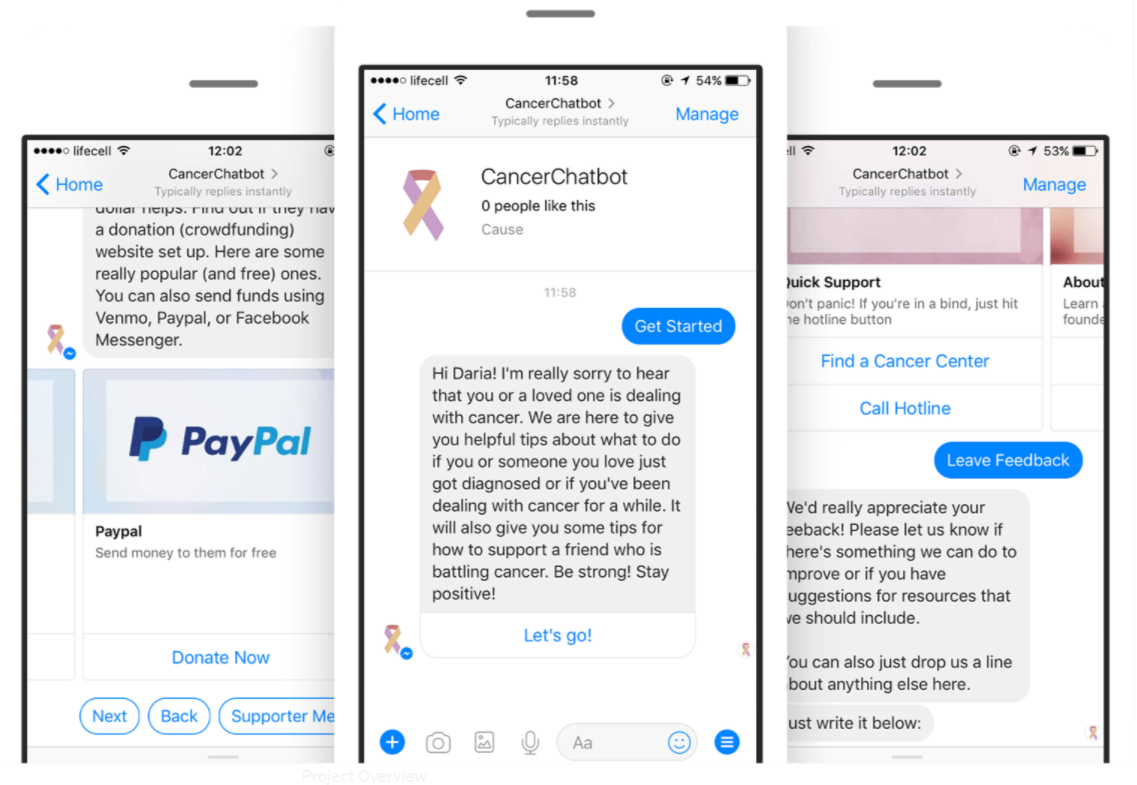
- Cancer Chatbot, according to Medium, can be used in conjunction with Facebook Messenger.
- Type in “cancerchatbot” in its search bar.
- Start a conversation with Cancer Chatbot.
- Type in your inquiry and the chatbot responds with trusted info from its database.
If you have people working in carcinogenic environments, this healthcare chatbot is a must. It will support you in helping people keep track of their symptoms, as well as educating them on signs and symptoms to look out for.
Also interesting: 3 Tips To Make Your Chatbot Conversations More Engaging
6. Woebot
Woebot, as its website puts it, is a healthcare chatbot that “infus[es] artificial intelligence with the empathy and expertise of a therapist” to provide the best mental health solutions to patients everywhere via text messages.
Here’s how it works:
- Open the app and complete a cognitive-behavioral therapy (CBT) test.
- After you take the test, the chatbot can study your mood and personality.
- Then, Woebot will suggest remedies from a certified therapist.
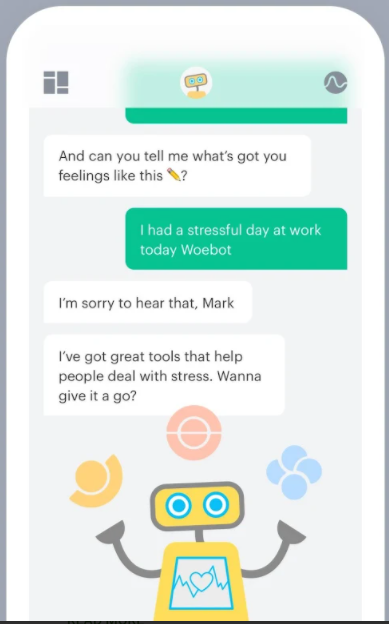
7. Buoy Health
Finally, the Buoy Health healthcare chatbot takes all the research on symptoms and simplifies them for you. In fact, on their site, they provide a step-by-step process on how to use this chatbot:
- State your symptoms.
- Get feedback.
- Choose the best care option for you.
- Allow Buoy to follow up with you via text message.
- Tell your story in the Buoy community.
Conclusion
With AI dominating technology, along with healthcare, these are 7 of the most effective chatbots to consider. If you are a health care provider looking to implement a chatbot, we hope that you will find these use cases helpful. If you have any questions or would like to discuss use cases for your business, Onlim experts are happy to help.
Author bio:
Kristin Herman is a writer and editor at Pay for an essay. As a marketing writer, she blogs about the latest trends in online advertising and the basics in campaign running.
What are Large Language Models (LLMs)?
March 18th, 2024|
What are chatbots and how do they work?
November 23rd, 2023|
The AI Act and its impact on the use of chatbots
October 27th, 2023|
